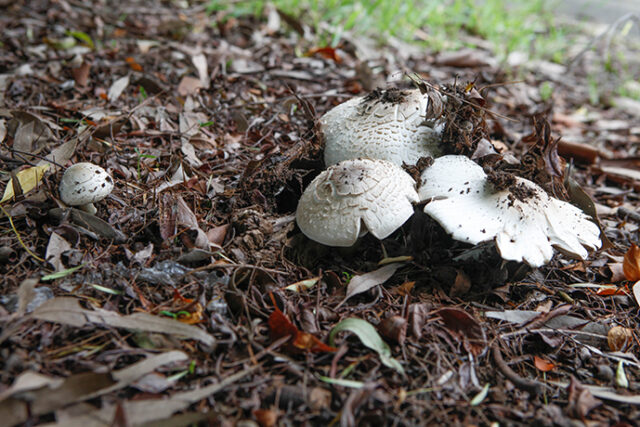Penrith residents are being warned of potential health risks because of the recent wet weather and humid conditions.
Wild mushrooms popping up around town can be potentially fatal and there is an increase of the risk of mosquito-borne viruses.
Senior Specialist in Poisons Information at the NSW Poisons Information Centre, Genevieve Adamo said there has been an increase in calls this year regarding mushroom exposures.
“For children, mushroom ingestion is often accidental but for adults, we know that ingestion is usually intentional, either from experimental use or using mushrooms in cooking. People don’t realise that this could be deadly,” she said.
“Changes in environmental conditions mean toxic mushrooms can grow in a spot where previously only edible mushrooms grew so the fact you have safely eaten mushrooms growing in that spot previously is no guarantee that it is safe to pick mushrooms again.”
Poisonous mushrooms commonly cause nausea and vomiting but can also lead to liver and kidney damage.
Symptoms can be delayed but early treatment is vital, so anyone who is exposed to wild mushrooms should call the Poisons Information Centre on 13 11 26.
Nepean Blue Mountains Local Health District Director of Public Health, Dr Victor Carey said people are also urged to take steps to avoid being bitten by mosquitoes, with numbers anticipated to increase further in the coming days.
“Ross River Virus (RRV) has recently been detected in the mosquito population at Penrith, placing residents at risk of contracting the virus if bitten by mosquitoes,” Dr Carey said.
“Japanese Encephalitis has the potential to cause serious illness and, while it has not been detected in the Nepean Blue Mountains area, its emergence in southern NSW emphasises the need for caution.”
Symptoms of RRV typically include a rash, lethargy and a low-grade fever that can last for months with no specific treatment.
Dr Carey said there are simple actions to help prevent mosquito bites.
“Avoid going outdoors during peak mosquito times, especially at dawn and dusk, and wear sleeves, pants, shoes and socks outdoors to reduce exposure,” he said.
“Apply repellent to the skin, especially those that contain DEET, picaridin, or oil of lemon eucalyptus, which are the most effective and reduce all water holding containers around the home where mosquitoes could breed.”
Emily Feszczuk
A graduate of Western Sydney University, Emily covers Local, State and Federal politics for the Weekender, as well as crime and general news.

